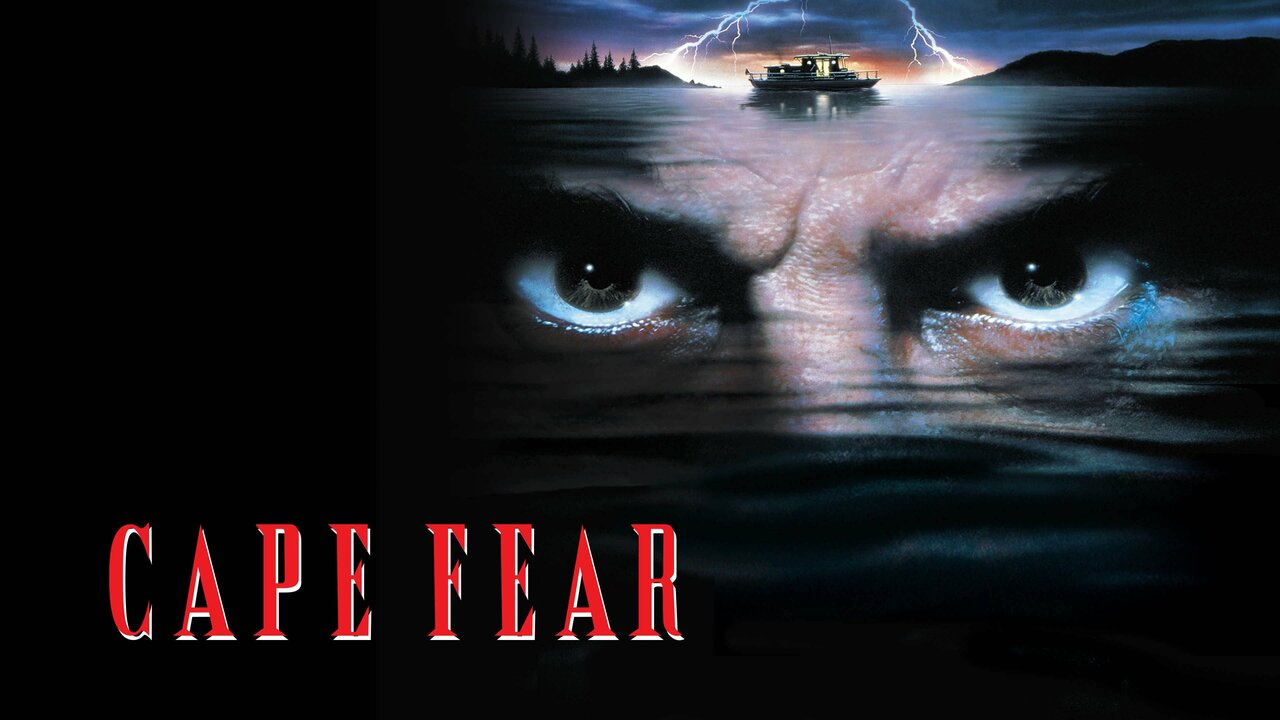Cape Fear (1991)

Martin Scorsese’s “Cape Fear,” released in 1991, stands as a quintessential example of psychological horror, blending intense storytelling with masterful direction. This film, a remake of the 1962 classic of the same name, and based on John D. MacDonald’s 1957 novel “The Executioners,” reinvents the original story with a darker, more complex vision. With a star-studded cast including Robert De Niro, Nick Nolte, Jessica Lange, Joe Don Baker, and Juliette Lewis, the film exemplifies Scorsese’s unparalleled ability to manipulate suspense and psychological tension.
At its core, “Cape Fear” is a tale of revenge, terror, and moral ambiguity. The narrative follows Sam Bowden, a lawyer played by Nick Nolte, who becomes the target of a vengeful ex-convict named Max Cady, portrayed by Robert De Niro. The story unfolds as Cady, having been released from prison, seeks retribution against Bowden for testifying against him years earlier, an act that led to his incarceration. What makes this film particularly gripping is the depth of character exploration and the sheer intensity of Cady’s vendetta, which drives the psychological thriller to its chilling climax.
Robert De Niro’s performance as Max Cady is nothing short of iconic. De Niro delves into the role with an unsettling blend of charisma and menace, creating a character that is both mesmerizing and terrifying. Cady is portrayed as a calculated predator who uses psychological manipulation and intimidation to terrorize the Bowden family. De Niro’s commitment to the role is evident in his transformation, including a dramatic change in appearance and a disturbingly charismatic demeanor. His portrayal elevates the film from a standard thriller to a profound exploration of fear and psychological torment.
Nick Nolte, as Sam Bowden, provides a powerful counterbalance to De Niro’s Cady. Bowden is depicted as a man who must confront his own moral failures and fears as he faces the relentless pursuit of a man bent on vengeance. Nolte’s performance conveys a deep sense of anxiety and helplessness, which heightens the film’s tension and underscores the personal stakes involved. Jessica Lange, playing Bowden’s wife Leigh, adds a layer of emotional complexity, embodying the distress and vulnerability of a family under siege. Juliette Lewis, as the Bowden’s teenage daughter Danielle, also delivers a notable performance, portraying a character whose own personal growth is overshadowed by the unfolding terror.

Scorsese’s direction is pivotal in shaping the film’s atmosphere and tone. His use of visual and auditory elements creates a sense of dread and unease that pervades the film. The cinematography, crafted by Freddie Francis, employs dramatic lighting and unsettling camera angles to emphasize the claustrophobic and menacing atmosphere. The score, composed by Elmer Bernstein, complements this mood with its haunting and suspenseful melodies, further immersing viewers in the film’s psychological landscape.

One of the film’s most striking aspects is its exploration of themes such as justice, morality, and the nature of evil. “Cape Fear” challenges viewers to consider the consequences of their actions and the fine line between right and wrong. The film raises questions about retribution and whether the pursuit of justice can justify morally ambiguous actions. This thematic depth adds layers of complexity to the narrative, making it more than just a horror film but a provocative commentary on human nature and the legal system.

The tension in “Cape Fear” is not merely a result of its plot but is also meticulously crafted through its pacing and narrative structure. Scorsese builds suspense through a series of escalating confrontations and psychological battles between Cady and the Bowden family. The film’s climax, a harrowing sequence set in the Bowden’s secluded houseboat, showcases Scorsese’s skillful direction and the film’s ability to keep viewers on the edge of their seats.

In conclusion, Martin Scorsese’s “Cape Fear” is a masterful remake that redefines the psychological thriller genre. Through powerful performances, particularly by Robert De Niro, and Scorsese’s expert direction, the film delivers an intense and thought-provoking experience. It stands as a testament to Scorsese’s ability to elevate a classic story through modern sensibilities, creating a film that is both a suspenseful thriller and a profound exploration of fear and morality.











